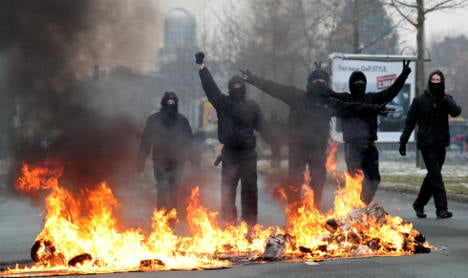The comments came as Friedrich presented an annual report by Germany’s Federal Office for the Protection of the Constitution, which is the country’s domestic intelligence agency the Verfassungsschutz.
“We have the danger of a spiral of violence,” he said, saying pointing to a sharp increase in crime by leftist extremists in the first quarter of 2011.
Friedrich said radical Islam also severely threatened Germany’s security, despite the recent killing of Osama bin Laden.
German officials have recently expressed particular concern about Salafist Islam following the killing of two American soldiers at Frankfurt’s airport by a man who allegedly had contacts with Salafists.
The issue of left and right-wing extremism has also been in the spotlight recently after the two sides engaged in a series of tit-for-tat attacks in Berlin in recent weeks.
The escalating violence has included assaults on high-ranking members of the extreme rightwing National Democratic Party (NPD) and arson attacks on leftist premises.
Though right-wing extremist violence declined nationwide overall last year, it increased slightly in eastern German states.
Friedrich said despite fears, the fusion of the NPD with another extremist party called the DVU, this had not led to a strengthening of the far-right.
The report also mentioned concerns with anti-Semitism among some fringe elements of the more mainstream socialist party The Left.
In April, an anti-Semitic flyer was discovered on a website operated by a regional chapter of the party in Duisburg.
DPA/The Local/mdm



 Please whitelist us to continue reading.
Please whitelist us to continue reading.
Member comments